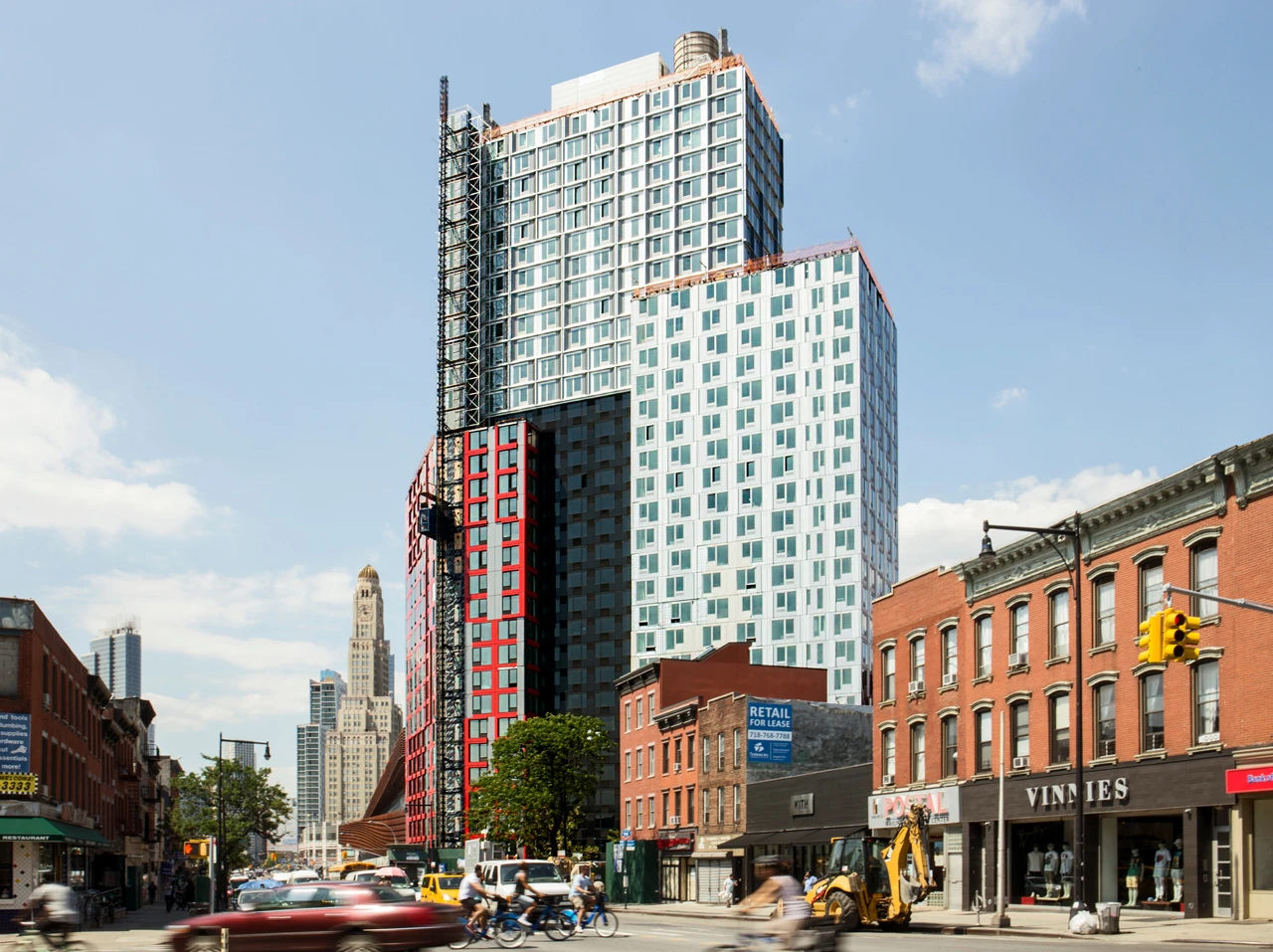The 22-acre Pacific Park development–formerly known as Atlantic Yards–is one of the most controversial and architecturally ambitious projects taking place in downtown Brooklyn. The SHoP-designed 32-story modular skyscraper was the world’s tallest when it was proposed, a grand experiment in prefabrication whose units were constructed inside a new factory at the Brooklyn Navy Yard. Yet the project has been mired in lawsuits and fraught with construction delays.
Now its developer, Forest City Ratner Companies (FCRC), has announced that it is leaving the prefab business entirely, the New York Times reports. The New York–based developer sold its factory and intellectual property (meaning the structural system designed for the skyscraper) to a new company called Full Stack Modular. Founded by Roger Krulak, who was formerly senior vice president of modular construction at FCRC, Full Stack Modular plans to use the construction techniques invented for the skyscraper, known as 461 Dean, on multi-family, hotel, and dormitory projects.
So why, just a few months after the skyscraper topped out, is its developer selling the business it built?

MaryAnne Gilmartin, CEO of FCRC, told Co.Design the following via email:
We have always been firm believers in modular construction and we are incredibly proud of the breakthroughs we’ve made. With the completion of 461 Dean we wanted to move quickly to find a buyer for the modular business because we’re developers and never intended to be in the factory business. The sale allows us to put our focus on our core strengths: management of our assets and our incredible pipeline of development. We can’t wait to show the world 461 Dean this fall. It is a phenomenal product with amenities only possible due to its modular construction. People are going to be blown away, and we know that modular has a big future.”
FCRC entered the prefab business unexpectedly when it took over the factory from the contractor FCRC had hired to built the modules, Skanska. Though FCRC still has faith in the construction technique and envisions a future for modular skyscrapers in New York, it says it decided that being a factory owner did not make sense for its own business trajectory.
Instead, Krulak sees 461 Dean as both a lesson in how not to design and build modular skyscrapers, but also as a trial run that streamlined the methodology and process. “One of the things I want to do in my world is bridge the silos of development, construction, and design,” he says. “They’re three distinct silos that interface at different points in the building process. It needs to happen at the beginning and it has to be a complete design build process. So if you say, I love this building’s design, can you modularize it? Chances are they broke all the rules and it won’t work.”
For decades, prefab has been touted as a methodology that would generate better buildings less obtrusively in a fraction of the time of conventional construction. That prediction did not hold true for 461 Dean, but Krulak unflinchingly believes that modular construction is the future of multi-family buildings in New York.
“I don’t think you should remain skeptical [about modular construction] unless you think of the United States’s ability to adapt meaning that the industries are too entrenched in their silos that they don’t want to embrace it,” he says. Full Stack Modular currently has a handful of contracts in the works for multi-family projects, but isn’t attempting anything as tall as 461 Dean. “Our sweet spot for modular in an urban environment is in the 10-to-18-story, 80,000-to-120,000-square-foot buildings,” he says.
Time will tell if those projects help fulfill some of the weighty expectations of modular building–and benefit from the hiccups of 461 Dean.
Correction: The project, 461 Dean, was incorrectly referred to as 461 Park in an earlier version of this story.
[All Images: SHoP Architects]
Recognize your brand’s excellence by applying to this year’s Brands That Matter Awards before the early-rate deadline, May 3.
